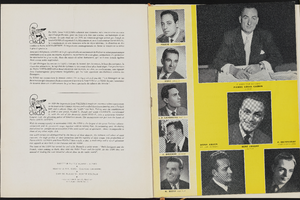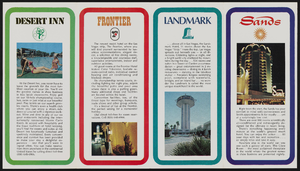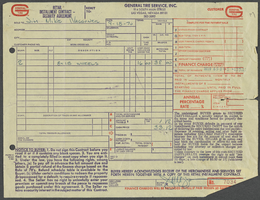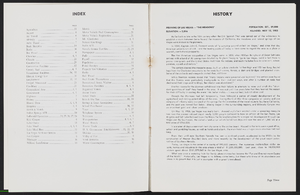Search the Special Collections and Archives Portal
Search Results
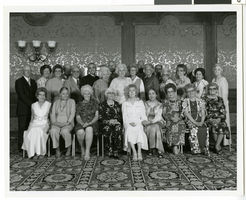
Photograph of the Las Vegas High School class of 1929 50th reunion banquet, Las Vegas (Nev.), May 5, 1979
Date
Archival Collection
Description
Image
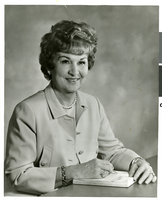
Photograph of a portrait of Judy Bayley, circa 1960s
Date
Archival Collection
Description
Image
Las Vegas Ambassadors Collection
Identifier
Abstract
The Las Vegas Ambassadors Collection (1968-1985) primarily consists of a scrapbook, newspaper articles, and photographs documenting the activities of the Las Vegas Ambassadors youth singing group. The materials were compiled by Harry LaFavor, the Ambassadors' business manager, who co-founded the group with Norman Kaye and Richie Astone to promote a positive image of Las Vegas. The collection also includes a songbook, vinyl record and ¼” tape recording, and promotional materials.
Archival Collection

Transcript of interview with James M. Bonaventure by Claytee D. White, September 9, 2014
Date
Archival Collection
Description
Text

Newspaper clipping, Nevada lawmakers study bills to curb operations of agency, Wall Street Journal, March 8, 1957
Date
Archival Collection
Description
The state legislature was holding hearings on a bill that would replace restrictions on the water district that would endanger their outstanding bond issue.
Text

